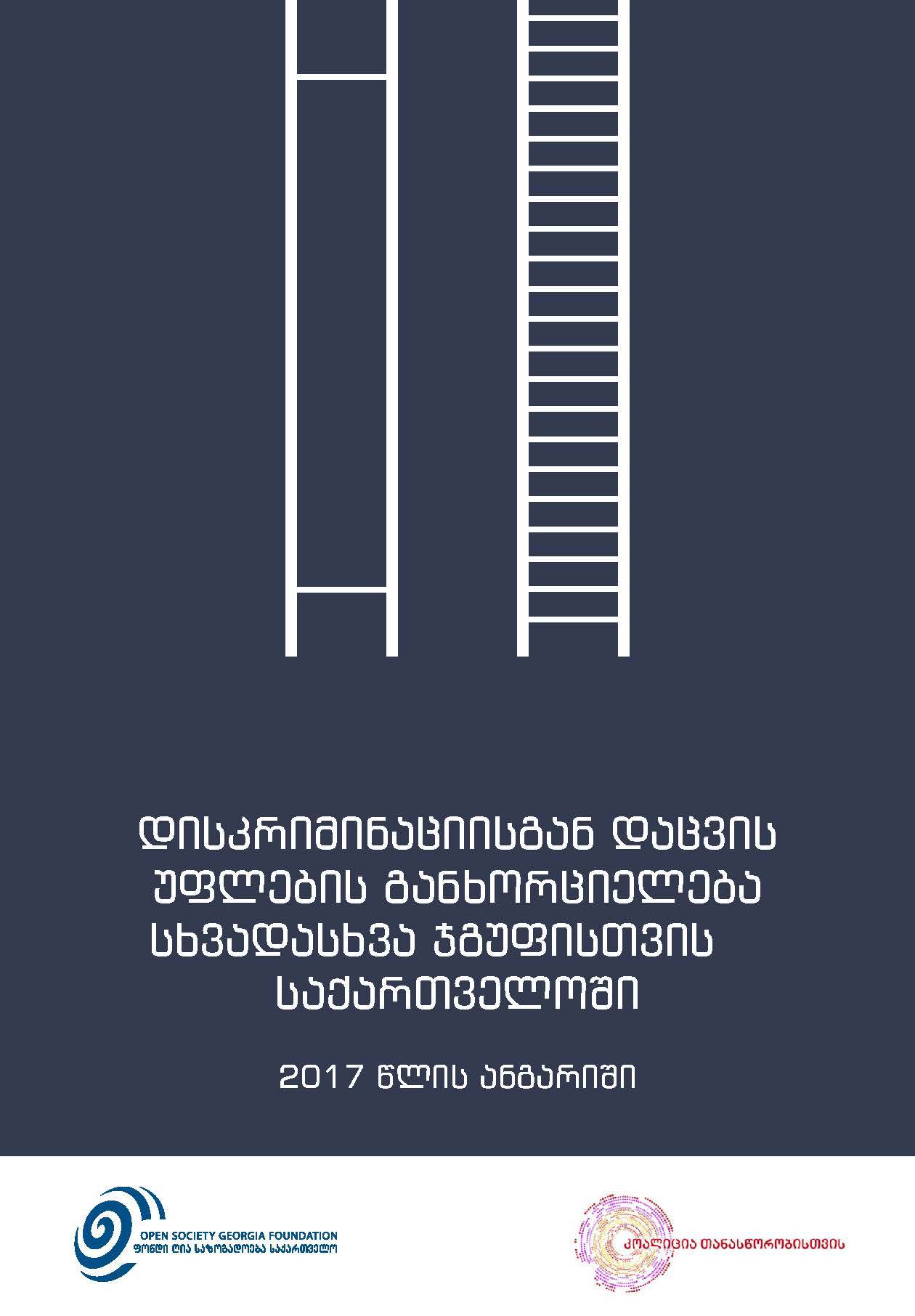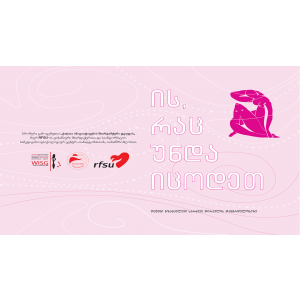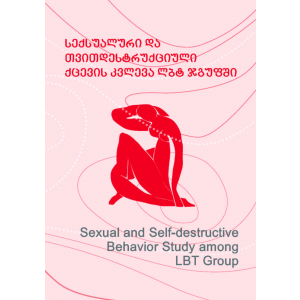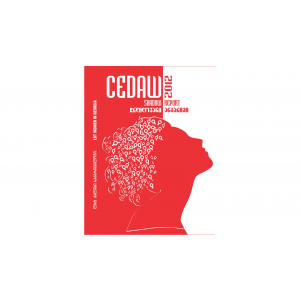This document analyzes the implementation of the right to equality for various groups in Georgia in 2017 and evaluates the current situation in the fight against discrimination, key challenges, state policy, legislation and practice. The document is the second report prepared by the Coalition for Equality aimed at promoting effective anti-discrimination policies in the country and ensuring equality.
The report analyzes the major events during the year in relation to the rights of various groups. It describes the human rights situation in terms of discrimination against women, persons with disabilities, children, LGBTQI, non-dominant religious groups, ethnic minorities, sex workers, presons affected by natural disasters and looks at the problems related to dissidents persecuted in Azerbaijan and Chaglari schools. The report offers recommendations to various state authorities in order to effectively implement the right to equality of these groups.
Despite the growing practice of the courts and the Public Defender in discrimination cases, in 2017 no relevant changes were introduced to create effective mechanisms for the implementation of anti-discrimination legislation and for strengthening the Public Defender as the equality body. Legislation still does not envisage certain forms of discrimination and the mechanisms of protection against thereof, including through the court. The lack of effective institutional and procedural instruments hinders the process of implementation of positive changes for ensuring equality in the State.
In the reporting period, Georgia ratified the Council of Europe Convention on preventing and combating violence against women and domestic violence and implemented a number of legislative amendments to enhance the mechanisms for protection against violence. Nevertheless, violence and discrimination against women remains a hidden problem and the state’s policy and practice for ensuring gender equality still proves to be relatively ineffective. Women’s political participation and economic empowerment remain a major challenge.
Effective protection of children’s rights is another concerning problem. Particularly worrying is the state of children living on the streets. It is necessary to find efficient ways for the protection of the children’s rights to healthcare and education, address the problem of child poverty, and ensure children’s access to justice. Persons with disabilities still have to struggle every day to have access to environment,
social inclusion, public or private services. One of the most important problems is ensuring reasonable accommodation and effective implementation of the legal capacity reform.
The year of 2017 was particularly negative in terms of protecting lesbian, gay, bisexual, trans, intersex and queer rights to equality. The Constitution of Georgia was amended and marriage was defined as the union of a man and woman for starting a family. Discrimination and violence motivated by homophobic and transphobic hatred and ineffective response of law enforcement authorities thereto remain the biggest problems for the group. The social conditions of transgender individuals is still gruesome. Women sex workers, including transgender women, represent one of the most vulnerable groups who are subject to systemic oppression and hardly ever obtain access to legal remedies.
The reporting period was particularly marked by the state’s discriminatory policy towards dissidents presecuted in Azerbaijan, as well as for Turkish citizens declared as “political enemies” by the Turkish authorities. The human rights situation of non-dominant religious groups has not substantially improved. The problem was revealed in the discriminatory practices towards the construction of religious buildings and the transfer of structures of worship without a proper examination of their confessional owners by the state. Representatives of Muslim communities still point out the practice of religious discrimination in the process of crossing the state border. The cases of discriminatory harassment of Muslim students on the ground of wearing a headscarf was also problematic. The issues related to ethnic minorities were still insufficiently represented in the political agenda and the protection of their rights was again placed within the security paradigm.
The state does not have a unified policy and vision to improve the situation of persons affected by natural disasters, and the protection guarantees envisaged in the legislation for internally displaced persons do not apply in relation to displacement as a result of natural disasters.The Coalition for Equality hopes that this annual report of the situation concerning equality in the country will increase the visibility of challenges that the above discriminated groups face. Ultimately, the Coalition seeks these issues to be reflected in the political agenda of the country, which is essential for the development of effective anti-discrimination legislation and policy and for ensuring equality in the country.
Read the full report in English to the following link: The Right to Non-Discrimination in Practice for Various Groups in Georgia







